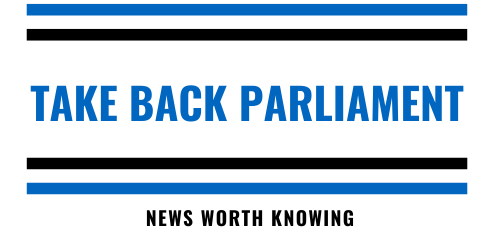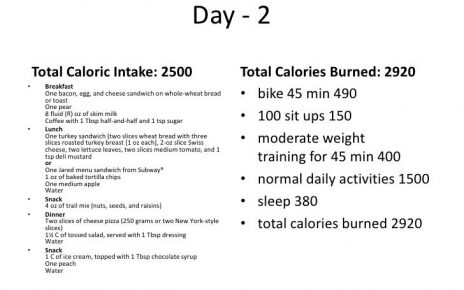I previously wrote an article pertaining on how to burn fats while sleeping. I pointed out that by strengthening your body and increasing your metabolic rate, you can actually help yourself lose weight even while your body is idle, such as in a sleeping mode.
Yes, there are scientific basis that sleep affects our body’s natural rhythm. The quality and sleeping time can regulate our body hormones that constitutes to our mental, emotional and physical functions, this includes your appetite control and mood swings.
However, depriving yourself from sleep can have an adverse effects on health, this includes the body’s ability to lose fat. With the modern lifestyles force people to practice lavish living, without considering its health consequences. Lack of sleep may very well the culprit of your weight gain dilemma.
How can Sleep Deprivation Affects Weight Loss
A study conducted by University of Chicago suggests that sleep deprivation compromises an individuals weight loss efforts such as dieting. Plus, it can affect the hormones that controls hunger.
University professor and director Dr. Plamen Penev said, that cutting back on sleep limits fat loss by 55% compared to individuals who sleep adequately at night. This statement was based on the University’s actual research on ten overweight individuals who were subjected to practice similar dieting program without exercises every 14 days. Ironically, their sleeping patterns was the main purpose of their research.

Getting enough sleep, the volunteers was able to lose an average of 6.6 pounds for each 14-day study periods. This includes 3.1 pounds of fat and 3.3 pounds of body mass (protein). However, during the weeks where the volunteers were forced to limit their sleeping time, they only lost 1.3 pounds of fats and 3.2 pounds of body mass.
The volunteers lost an average of 6.6 pounds during each 14-day session. During weeks with adequate sleep, they lost 3.1 pounds of fat and 3.3 pounds of fat-free body mass, mostly protein. During the short-sleep weeks, participants lost an average of 1.3 pounds of fat and 5.3 pounds of fat-free mass.
Aside from that, the university also reports that not having enough sleep can affect the hormones leptin and ghrelin. When you are deprived of sleep, your ghrelin hormone levels increases which triggers your appetite. This means that you crave more for foods which drives you to practice mindless munching.
In contrast, leptin hormone levels are reduced if you are lacking in sleep. Since leptin is produced naturally thru fat cells where its function is to send signals to the brain when you are full, having low leptin levels won’t make you feel full after your meal. So sleep deprivation can really affect your body’s hormones which controls your appetite, which in turn are crucial to your weight loss program.
The study proved that less sleep can disrupt your body’ normal rhythm. It can affect your weight loss and your body’s natural hormones functions. In addition to that, the levels of fat loss can also trigger sleeping pattern issues such as sleep apnea. What does sleep apnea got to do with weight loss?
Weight Loss and Sleep Apnea
Sleep apnea is a sleep disorder causing an individual to stop or pause breathing for up to a minute during the night while sleeping. This can be low breathing and could happen multiple times per night. People with sleep apnea can affect how your body lose fat so getting more sleep is not entirely the solution to have successful weight loss.
WebMd published an article regarding this issue and based it on Connecticut Center for Sleep Medicine (Stamford Hospital) study headed by Dr. Dominc Roca. Sleep Apnea is said to be caused by the closing of air passages during sleep, resulting to breathing problems and snoring. However, the nature of why the air passages are closing are still unknown.
What are the link between sleep apnea and weight gain? Dr. Roca’s experiences led him to the conclusion that leptin hormones plays a bigger role on people with sleep apnea and their weight issues. Obese individuals are prone to sleep apnea and most of them have higher levels of leptin, which are uncharacteristic for fat people.
Once sleep apnea is treated, leptin levels drop and causes obese individuals to lose weight. This is in contrast from the statement released by University of Chicago. But why some people lose weight and some gains weight when leptin levels are reduced?
Dr. Michael Breus of Atlanta School of Sleep Medicine suggests two theories on this mystery. He said that the level of hormones might not be the only culprit for weight loss especially to obese individuals. He added that obesity makes people to become resistant to the “fullness” signal that leptin hormones sends out to the brain. This is the reason why they lose weight and become more energetic instead of craving for more foods and ultimately gains weight.

Another suggested theory is that, leptin hormones functions differently to each one of us. Factors that can cause this abnormality are dietary habits, exercise routines, stress factors or it can also be triggered by genetics.
As a stimulant, caffeine can reduce fatigue and help you focus better. This is helpful when combining supplements with an exercise program. The stimulating effect of caffeine also helps suppress appetite. You will be less likely to feel hungry. This will suppress your appetite and help in the weight loss journey.
Sleep More for Total Weight Loss!
While obese and slim individuals have different reactions with regards to hormones, one thing is certain – adequate sleep helps you lose weight. You need at least eight hours of sleep every night to achieve suitable energy for the day ahead. If you are energetic, you can effective avoid eating in-between meals especially those calorie foods.
However, you still needs to increase your metabolic rate in order to achieve fat loss during night sleep. You can do this by consistently practicing your daily workout routines and a healthy and balanced diet. Once you achieve this, you can be sure that you burn fats while sleeping.
How to Speed Up your Metabolism and Lose Weight Fast
There is no dispute that increasing your body’s metabolic rate will help you lose weight even while sleeping. Otherwise, sleep deprivation means health disaster for you. But you of course, you can’t just rely on sleeping and expect losing pounds. There is much more tasks to be done actually.
Aside from consistent exercise and restrictive but balanced diet, you need to take supplements to further help you on your weight loss endeavors. Most people who wants to shed pounds are taking supplements to support their appetite control, fat burning capabilities of their body, blocking of calorie and carbohydrate absorptions and many others.
Yes, weight loss supplements are considered your ally and won’t give you any side effects. Of course you need to trust only the best and clinically proven effective and safe supplements that you can highly depend for your weight loss program. One of the most widely trusted supplement is Phen375.
Phen375 is made only from 100% organic ingredients which makes this product the most effective and safe diet pill in the world. This product offers multiple weight loss functions that no other supplements can do – carb blocker, appetite suppressor, metabolism charger and a fat burner. It’s like multiple supplements made into one powerful diet pill.



